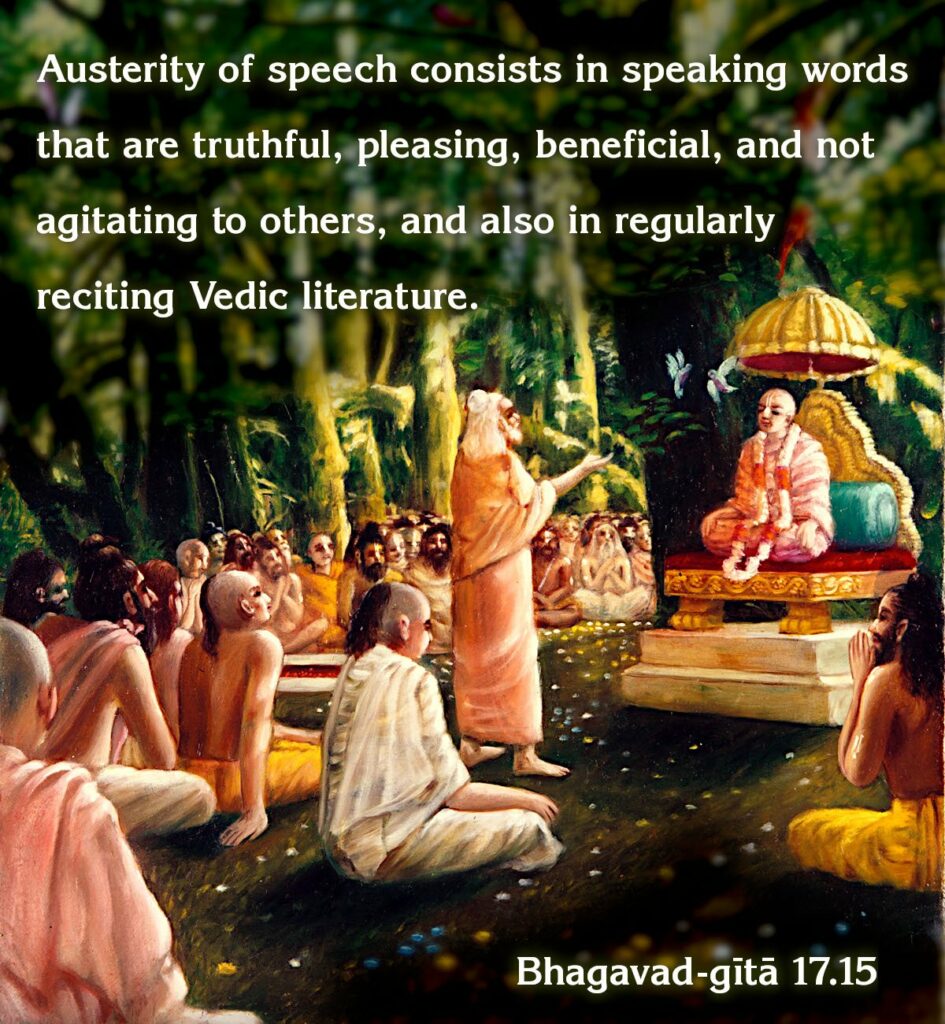अनुद्वेगकरं वाक्यं सत्यं प्रियहितं च यत् |
स्वाध्यायाभ्यसनं चैव वाङ्मयं तप उच्यते || 15||
anudvega-karaṁ vākyaṁ satyaṁ priya-hitaṁ cha yat
svādhyāyābhyasanaṁ chaiva vāṅ-mayaṁ tapa uchyate
anudvega-karam—not causing distress; vākyam—words; satyam—truthful; priya- hitam—beneficial; cha—and; yat—which; svādhyāya-abhyasanam—recitation of the Vedic scriptures; cha eva—as well as; vāṅ-mayam—of speech; tapaḥ—austerity; uchyate—are declared as
Translation:
Words that do not give offence and that are truthful, pleasant, and beneficial, and also the regular recitation of the Vedas— these are said to be the austerity of speech.
Commentary:
Anudvegakaram vakyam: Speech should conform to the four principles enunciated here. First, it should not excite, trouble or injure others. Second, It should be gentle and peaceful.
Secondly, it should be truthful; thirdly, it should be beneficial on all sides. This four-way test of speech is the most important aspect of social conduct. One may speak the truth but it may be harsh, painful and exciting. So even in speaking truth, the words chosen and the manner should be pleasing and delightful. This is the Tapas of speech.
Svadhyayabhyasanam: The need for practising the study of the Sastras, is emphasised here. Every day some parts or portions of the Vedas, Upanishads and the Puranas should be read. This is a clear reply to those who question – “Meditation is important, why all this study?” of course, Meditation is important, but during the intervals, the aspirant should take to the studies of the Sastras to clarify his ideas and keep up the fire of inspiration. Svadhyaya is like the wind to the fire of meditation. By truthfulness and Svadhyaya, speech acquires mysterious power. What is spoken even casually comes out true in actual life.
Question: What is the austerity of speech?
Answer: 1. Unexciting, 2. truthful, 3. delighting and beneficial speech, and 4. the study of the Vedas, Upanishads and the Puranas, are called austerity of speech.
Bhagavad Gita: Chapter 17 🔻 (28 Verses)
